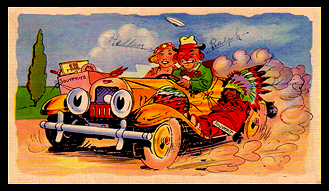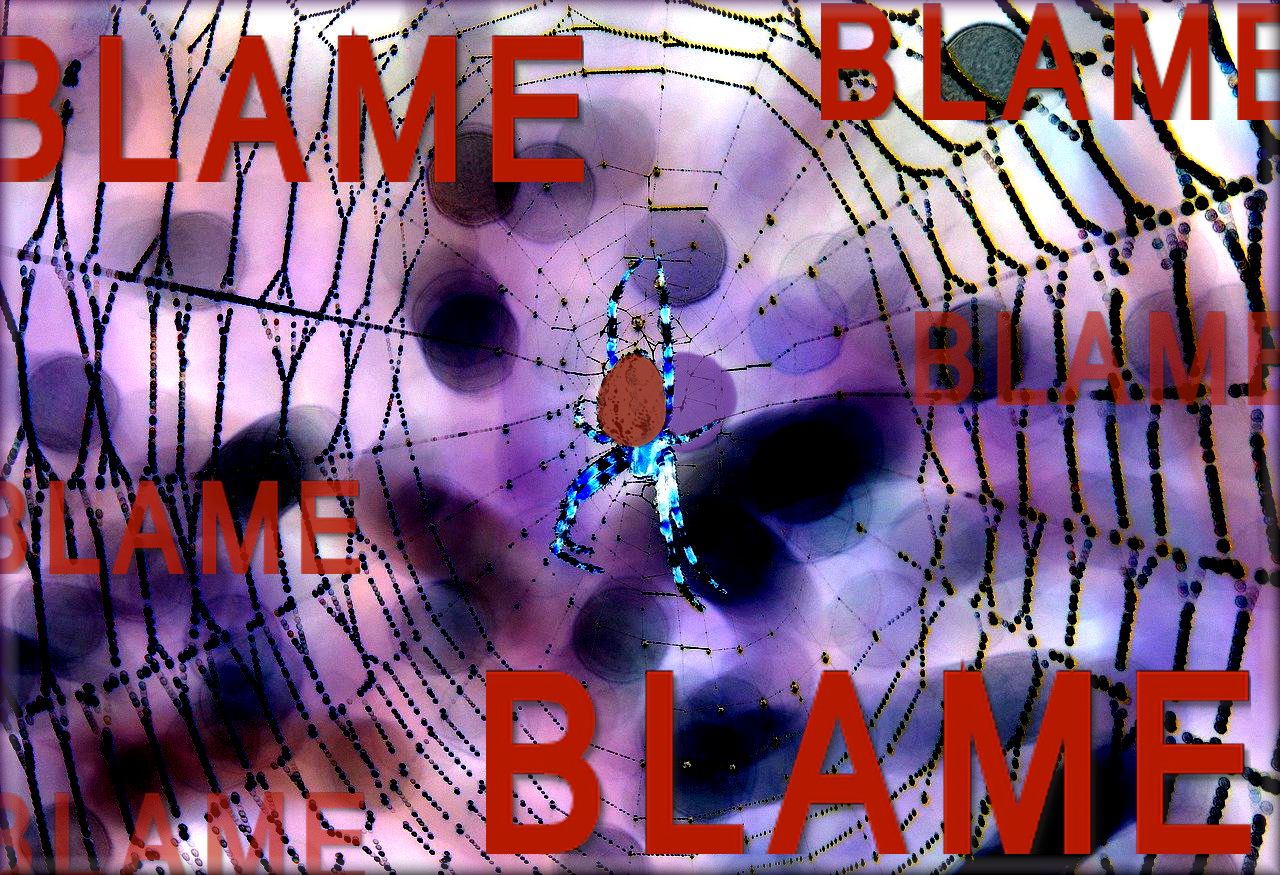
Featured Stories
Stories Selected by Our Editors.

Echoes of Barbara Mandrell
A work of fiction
Appaloosa Radio offers “Echoes of Barbara Mandrel,” a poignant new audio drama that explores love, loss, and the power of memory.
Charles lives in the Oak Knoll Memory Care Facility, where his memory disease has robbed him of his memories, emotions, and personality. He exists in a perpetual gray fog that makes him unresponsive to what is around him.
When Charles receives an experimental treatment to restore his lost memories, he’s suddenly transported back to his experiences performing with country legend Barbara Mandrell. Vivid recollections from decades past flood Charles’ mind, and fantasy and reality begin to blur. Believing Mandrell is in danger, he embarks on a quixotic quest to save her. Charles’ harrowing journey plays out over the infectious melodies of Mandrell’s classic hits, building to a bittersweet finale where Charles’ musical memories prove more powerful than death itself.

REWIND
Rewind
An Extremely Short Story
By Dianne Pollarino
Robert had been the most intelligent guy in his high school graduating class. Straight A. 1400 on the SAT.
And he played basketball and played it well. Good looking. Great sense of humor. Easy going. Graduated from MIT in three years. Started his own company inventing gizmos that the aerospace industry could not get enough of.
By 30, his net worth approached half a billion dollars.
She had dated Robert while they were in high school. She became a pediatric nurse. With his great sense of humor, he proposed to her in a note pinned in a baby’s diaper!
Now, he was 57 and suffering from advanced Alzheimer’s.
Every week, on the online form, she recorded another lost function.

Martin
A work of philosophical fiction.
Appaloosa Radio is pleased to present —
Martin: A Work of Philosophical Fiction.
This fictionalized love story is based, in large part, on the romantic relationship between the political theorist and devoted Zionist Hannah Arendt and her university professor, the noted German philosopher (and avowed Nazi) Martin Heidegger.
Arendt’s The Origins of Totalitarianism remains a major work of Twentieth Century political thought.
Heidegger’s seminal work, Being and Time, is often credited as the origin for modern existentialism.
Arendt met Heidegger when she was seventeen and he was thirty-five.

Alligator!
A Nell Trustmon story of frogotten ghost towns of the American West.
In rural mining communities like Boyce, Colorado, the arrival of the “Alligator Man” created a community-wide celebration. How could any of the Lithuanian miners continue to work in the deep, hard rock silver mine when there was a real, live alligator in town?
Gotta see that!
===========================================
“Good afternoon, Ladies and Gentlemen!
I am Professor Clyde Chantt, one of the world’s leading authorities on reptilian behavior. I have studied crocodilians on four continents: Africa, South America, North America, and my native Australia. I possess advanced degrees from six universities and have earned my Doctorae Residencia from Rosebud Institute of Science and Technology in Liverpool, England.
What you have before you in this metal tank is a male specimen of the genus Alligator from the family Alligatoridae. More specifically, this specimen is an American alligator (Alligator mississippiensis)
Now, ladies and gentlemen, I will attempt an act of exemplary bravery. I will attempt to feed this terrible beast from eons past. I’ll climb this ladder, and (if we are lucky) the specimen will jump up and grab his meal.
Be ready! Be careful! Remember, this a predator with the very quickest reflexes.
What about it, boy? Are you hungry? How about a tasty chicken? Show the people your scaly body.
Show it all.”

Souvenirs I Still Cherish
Helen Stanberry’s Story
The young couple had just arrived in the Blue Ridge Mountains of North Carolina. They had come from California to teach at the University. They sought property with “character” and with land. They were still amazed by a place with so many trees.
Graduate school and the cross-country move had considerably reduced their financial resources. When the agent showed them the large frame house with its towering trees and historic barn, they fell in love with the property. AND, it was one of the very few they could afford.
It would need some repairs and considerable modernization, but it was still perfect for raising their young sons.
A month or so after they had moved in, the young couple approached the barn. Its upper level was strewn with what looked like historical artifacts, things that seemed from another age. When they looked closely at these items, they found that they were actually souvenirs that someone had purchased. Each had a small tag with a notation written on it. For example, a moth-eaten, feathered Indian headdress said, Sioux Nation, South Dakota. A facsimile of the Declaration of Independence had a tag with Independence Hall, Philadelphia, and a dried-up container said, Salmon eggs, Grand Coulee Dam, Washington.
The family was puzzled. What was this collection? It obviously belonged to someone associated with the house. But who?
Then, carefully organized in a cardboard box, they found a collection of over 100 postcards. The postcards all seemed to be of the same time period, probably late 1930s, and they came from all over the United States. Only two had any writing on them.
One was addressed to Mr. S. O. Stanberry and was signed Helen. It simply said, “mailed package of my souvenirs, hope they arrive safely.” It was postmarked Kalispell, Montana.
The second was a cartoon postcard of a car loaded with souvenirs. On the front someone had written “Helen” and “Ralph.” The message on the back simply said, “Heading home, S.E. Eggers.” The postcard had been cancelled, but there was no marking where.
The young wife took the box of postcards into the house and placed them in a safe place. Later, she inserted each card into a plastic sleeve. As she looked through them, she wondered, “Who was Helen?”

Contemplating Evil
He drew a lungful of smoke from his ever-present pipe. He was now 87 years old. He once estimated that he had spent over two-thirds of his life with a pipe between his teeth, filling his lungs with burning Prince Albert pipe tobacco. To be more precise (since he was one who valued precision and accuracy), his estimate had been that he had spent 68.2 percent of his life with a pipe in his mouth.
He came from a generation of Southerners who believed that smoking a pipe was genteel, the sign of a contemplative gentleman, one who measured life carefully, and reached conclusions only after the consideration of all the available evidence.
He sat on his back deck looking at the hills behind his property. Just the merest hint of fall color. If it does not rain, in a couple of weeks the hills will be aflame with all the seasonal colors, and the looki-lews will be coming up to the mountains from Atlanta for their fall pilgrimage. Restaurants and hotels would be full. Craft fairs. Mountain music. A good time to stay home, he thought.
Still, it was good to live in the Georgia mountains. They understood him as no mortal did.
He sat on his back deck, smoking his pipe, in deep contemplation.

Dry Wheat Stubble
Based on a true story.
Mrs. Beckie Parnell Blake thought she was married for life with the perfect husband and three incredible sons.
Then, one day while at her job she received an unexpected phone call. One that changed her life.
“Mrs. Beckie Blake, I am Lisa Paternino and I am in love with your stud husband. He loves me too. So, we’re going to get married. He’s going to divorce you, so he can be all mine. He has such a great body. So warm. So sexy. I just love it when he touches me . . . .”
In the thousands of times that Beckie Blake mentally replayed the call from Lisa Paternino, she said she always heard the conversation end with a distinctive witches’ cackle.
Of course, that wasn’t true. Lisa was not a witch. She had no magical powers. She didn’t have a caldron in which she mixed special potions.
It was Beckie’s mind playing tricks on her. Beckie would never call another woman a witch. That would not be a Christian thing to say. But, deep in Beckie’s innermost thoughts, she could imagine a witches’ cackle, reinforcing her perception that weird, black magic had transformed her husband into something he was not.
No Lisa was not a witch. She was, rather, an astonishingly beautiful, and very intelligent, woman. Tall with honey blond hair, violet eyes, and a perfectly trim body. She had begun her modeling career when she was just fourteen. By seventeen, she was a high-priced call girl, prostitute whose regular customers were some of the richest men on the Pacific Coast.
Then she became the wife of Denver’s drug kingpin, George Paternino. He was incredibly rich with a house in Cherry Hills that featured an indoor swimming pool, and both an indoor driving range and an indoor putting green. He drove European sportscars, ate at the best restaurants, and traveled by charter jet.
He wasn’t much to look at (long, hippy; unwashed hair), but he had easy access to every drug imaginable, and his parties were phenomenal with many sports and music superstars. Lisa met him at one of his parties. He asked her out, and on that very first date asked her to marry him.
She did, in Las Vegas, two weeks later.
Unlimited drugs. Massive amounts of money. How could life get any better?
Unfortunately, George Paternino was arrested, convicted, and assigned to a prison outside Geary, Colorado, where he was permitted conjugal visitations with his wife Lisa.

One-armed Guitar Player
The morning fog had begun to lift around the pier, and the weekend tourists were starting to leave their hotel rooms for a day at the beach.
The one-armed guitar player opened his guitar case and carefully removed his Les Paul Deluxe 3 E X model from its well-padded home. He put one foot on the small bench and then rested the instrument on his knee. Some would say that it was remarkable that he could do so much with only his left arm, but for him the routine was ordinary. He held the guitar close to his chest with his chin and then fastened the strap. Once the guitar was secure, he lowered his foot to the ground and stood erect, checking to make certain that everything was comfortable.
It was time to begin his daily show. He plugged the guitar to his battery-powered amplifier. Speaking softly to his guitar, he said, “Time, my sweet, for beautiful music.” He began a soft jazz riff matching his mood and the weather.
Technically, he was not performing on the pier. The City could fine you $75 for doing that. He was not even on City property. He had a small wooden bench in a parking stall next to the world-famous oyster restaurant. The owner welcomed him. His music brought ambience to the place, and it cost the owner nothing. AND, how many places feature a one-armed guitar player?
He played only his own original music, composed spontaneously at that very moment, as ephemeral as the fog on the pier.
However, if you were to ask him, he would deny that he had any role in creating the music. “It was,” he said, “entirely what the guitar felt. I only strum the strings. The instrument itself creates the music, the magical web of chords. Not me. I am the very junior member of this team.”
Still, it was his hand that bled from the long hours playing soft jazz in the parking stall next to the world-famous oyster restaurant. It was his face that burned from too many hours in the sun. They were his legs that ached from standing erect in the same location, standing erect in the same location until all the tourists had returned to their cozy hotel rooms.
The guitar had the easy part; his was so much more demanding.

BLAME
by Roderick R.
Rapper Roderick R. has provided us an urban poem.

Gladys Patrcia Symington
by Jeannie Turner
Originally published in —From a Writer’s Finger to a Butterfly’s Wing. An anthology by the Sacramento Suburban Writers Club

